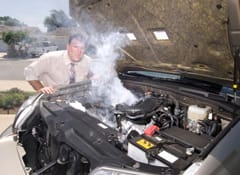Sign In

Menu
Suggested Searches
Recent Searches
Suggested Searches
Product Ratings
Resources
Chat With AskCR
Resources
All Products A-ZThe payment for your account couldn't be processed or you've canceled your account with us.
Re-activateMy account
Sign In
My account
Sign In


Repairing and reselling "salvage" vehicles is a very large business. While it is possible to restore such a vehicle to good condition, rebuilders often cut costs to make a profit. Even if they try to do a good job, no one can predict the crashworthiness and mechanical reliability of those vehicles.
Similar issues affect the estimated 60,000 vehicles that are repurchased by manufacturers under state lemon-law programs. Many are resold at retail. Lemons usually don't have the severe problems you'd expect with salvage cars. But it can be very difficult verifying that the chronic defect has been corrected.
State laws differ, sometimes considerably, on what they define as salvage vehicles and on how—or even if—those vehicles need to be inspected and buyers informed before resale. Your state DMV can explain how to spot a salvage title.
Consumer Reports found that these differing standards have led to the interstate trafficking of salvage and lemon vehicles. Even if titles of former lemon and salvage vehicles are conspicuously branded, those who buy a used car from a dealership often never see the previous title.
If you've unknowingly purchased a salvage vehicle or recycled lemon, contact your state consumer and motor vehicle officials. You also can check with NACA (www.naca.net), which keeps a list of lawyers who specialize in such cases.
Before you buy, check to see what protection your state offers and what's required of the seller. The Federal Trade Commission requires used-car dealers to post a buyer's guide on every used car, which details in writing all warranty information. Keep this after the sale.
Telltale signs that a car is a rebuilt wreck

Learn more about choosing a used car, avoiding a lemon, buying and selling a used car, pricing and financing, and more in our used car buying guide.
 Build & Buy Car Buying Service
Build & Buy Car Buying Service
Save thousands off MSRP with upfront dealer pricing information and a transparent car buying experience.
 Get Ratings on the go and compare
Get Ratings on the go and compare
while you shop